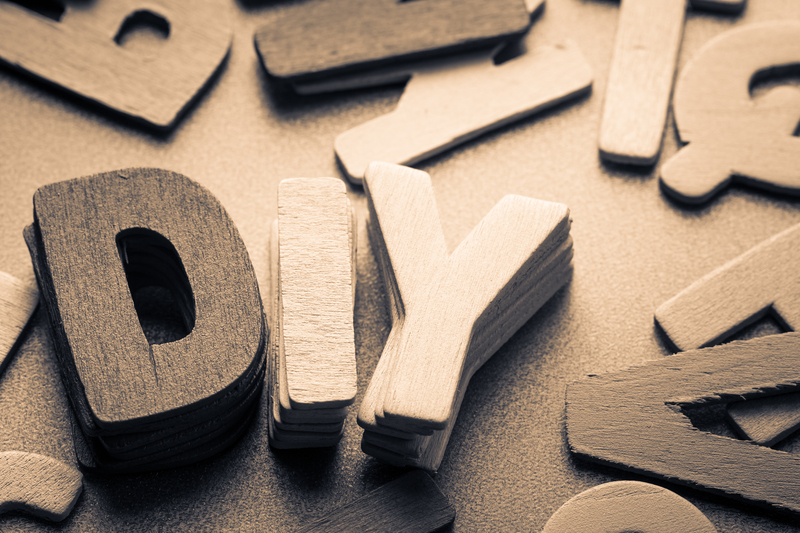Tips for Individuals on Responsible PPE Waste Disposal
The global use of personal protective equipment (PPE) has soared in recent years, especially during health crises like the COVID-19 pandemic. Items such as masks, gloves, and face shields are essential for personal safety, but they also contribute to mounting waste problems when disposed of irresponsibly. This article discusses essential tips for individuals on responsible PPE waste disposal, aiming to inform, inspire, and empower everyone to protect both public health and the environment.
Why Proper PPE Waste Disposal Matters
The sudden surge in PPE usage has introduced a different kind of environmental challenge. Improperly discarded PPE ends up littering streets, beaches, and waterways, threatening wildlife and ecosystems. Moreover, used PPE can harbor germs and viruses, potentially posing a health hazard to waste handlers and the general public. Understanding the impact of PPE waste management sets the foundation for practicing responsible disposal.
Environmental Impacts of PPE Waste
- Plastic Pollution: Most masks and gloves are made from non-biodegradable plastics like polypropylene or latex. Once littered, they persist in nature for decades.
- Threats to Wildlife: Animals may ingest or become entangled in improperly discarded PPE, leading to injury or death.
- Microplastics Creation: Sun and weather break down PPE into dangerous microplastics, infiltrating soil and water systems.
Public Health Concerns
- Disease Transmission: Used PPE can carry viruses or bacteria, risking infection for others who come into contact with them.
- Unsafe Landfills: Overwhelmed landfills without proper waste sorting can become breeding grounds for pathogens.

General Guidelines for Responsible PPE Disposal
Adhering to local guidelines and the following best practices ensures both effective PPE waste disposal and contributes to a cleaner, safer environment. Here's what you should know:
- Do not litter: Never discard masks, gloves, or other PPE in public spaces, streets, or natural environments.
- Single-use means single-use: Dispose of single-use items after each use, as recommended by health authorities.
- Avoid flushing: Never flush PPE (especially masks and gloves) down the toilet. They can clog plumbing and harm water systems.
- Proper containment: Place used PPE in a dedicated, leak-proof bag before disposing of it in household trash.
- Seal your waste: Tightly tie bags containing used PPE to prevent accidental spillage or retrieval by animals or children.
- Wash hands after disposal: *Always* wash your hands thoroughly with soap and water after handling PPE waste.
Detailed Steps for Disposing of Different PPE Types
Masks
Disposing of single-use masks responsibly:
- Remove the mask using the earloops or ties, avoiding contact with the outer surface.
- If possible, cut the earloops to prevent animal entanglement.
- Place the mask in a separate bag (such as a small plastic bag) and seal it tightly.
- Dispose of the sealed bag in the general waste bin, not in recycling.
Gloves
Proper glove disposal methods:
- Peel off gloves without touching the outside, turning them inside out as you remove them.
- Bag gloves separately from your main household trash, if possible.
- Seal and place them in your regular garbage. Do not recycle.
Face Shields & Goggles
How to handle reusable and disposable eye/face protection:
- Reusable face shields and goggles can be disinfected and reused.
- Disposable ones: Bag and seal before placing in general waste.
Other PPE (Gowns, Aprons, Shoe Covers)
- Used in households--dispose as general waste in sealed bags.
- Follow any local guidance for large volumes or contamination concerns.
Separating PPE from Recyclables
Most personal protective equipment is not recyclable through standard municipal programs. Placing PPE in recycling bins contaminates the recycling stream and puts sorting workers at risk.
- Always dispose of PPE in the regular trash unless your local government has a special program for their recycling.
- If a mask or gloves are made from biodegradable materials (which is rare), check for specific instructions on composting or special collection points.
Community PPE Recycling Initiatives
Some regions and organizations now offer dedicated PPE waste recycling schemes. These include:
- Special collection bins at hospitals, pharmacies, or supermarkets.
- Mail-back programs for large quantities of PPE waste.
Additional Safety Measures for PPE Waste Handling
- Consider double-bagging: If someone in your household is ill, double-bag their PPE waste and wait 72 hours before placing it outside for collection to protect waste workers from potential contamination.
- Label bags: Mark bags containing PPE with a note such as "PPE waste" if public or building guidelines require it.
- Minimize contact: Handle PPE with care, avoid compressing waste bags, and do not touch your face during the process.
- Disinfect bins regularly: Clean and disinfect your household waste and recycling bins, paying attention to lids and handles.
PPE Waste Reduction Strategies
Adopt Reusable Options When Appropriate
Reducing the need for single-use PPE is a practical way to ease the environmental burden. Here's how you can help:
- Use high-quality, washable cloth masks when not in high-risk settings or as allowed by guidelines.
- Substitute disposable gloves for frequent handwashing with soap and water, except in situations that require strict sterile protection.
- Purchase PPE from manufacturers who offer take-back or recycling programs.
Conservation and Smart Use
- Don't use PPE unnecessarily. Follow advice from credible health sources on when and how to use them.
- Avoid bulk purchasing or hoarding, which can lead to expired or wasted items.
- Share unused PPE with neighbors or local health organizations if you have a surplus.
PPE Disposal in Special Situations
If You Are Caring for a Sick Individual
- Dispose of all used PPE (including tissues and wipes) in a dedicated bin or bag, separate from other household waste.
- Wait at least 72 hours, if recommended, before putting the bag out for collection to limit transmission risk.
Travel and Outdoor Environments
- Carry a resealable bag to store used PPE until you find a proper waste bin.
- Never leave PPE waste in parks, transport stations, or natural reserves.
- Report overflowing bins or littering to local authorities to prevent environmental contamination.
Education and Advocacy for Responsible PPE Disposal
Spread Awareness
Many people may not realize the impact of careless PPE disposal. You can:- Talk to your friends and family about proper PPE waste practices.
- Share educational resources or social media posts from credible organizations.
- Inform your community about local PPE waste collection points or recycling schemes.
Support Local and Global Initiatives
- Participate in community clean-ups focused on collecting PPE litter.
- Encourage businesses, schools, and public facilities to provide special PPE disposal bins.
- Advocate for stricter regulations and more sustainable PPE products.
Addressing Common Questions on PPE Waste Disposal
Can PPE be recycled?
Most single-use PPE cannot be recycled with regular plastics due to contamination and material composition. Only specialized facilities can process PPE for recycling. Always check with local authorities.
Is burning PPE at home safe?
No. Burning PPE releases harmful toxins and pollutants. PPE should only be incinerated in controlled, industrial facilities with air filtration technology.
What are alternatives to single-use PPE?
Reusable cloth masks, latex-free and biodegradable gloves, and reusable face shields are increasingly available. Always ensure reusable PPE is properly disinfected after each use.

The Future of Responsible PPE Waste Disposal
As global awareness grows, innovations in sustainable PPE production and responsible waste management are on the rise. Scientists and designers are creating compostable or easily recyclable PPE, while policymakers push for stricter disposal regulations. As an individual, your actions - from diligent waste sorting to spreading awareness - are crucial in addressing this urgent environmental challenge.
Final Thoughts: Your Role in Protecting Public Health and the Planet
Disposing of personal protective equipment may seem like a small act, but multiplied across millions, it has a significant impact. By following these best practices for responsible PPE waste disposal, you can help minimize pollution, prevent disease spread, and support the well-being of your community and the environment.
- Stay informed about latest guidelines for PPE use and disposal.
- Practice safe and responsible waste management in your home and on the go.
- Support initiatives for sustainable PPE production and recycling.
- Lead by example and encourage others to do their part.
Together, we can make responsible PPE waste disposal a widespread habit and a powerful force for environmental health and resilience.